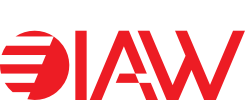Sustainability and favourable prices are not necessarily contradictory: in order to achieve a higher level of environmental compatibility and sustainability, you can focus on ecological friendliness in the selection of products, the choice of packaging and many other aspects, and in this way make your own contribution to sustainability. In addition, many customers are now increasingly demanding sustainable products and take this factor into account when they do their shopping. We show you what is important.
Packaging
Packaging is necessary for most products that we buy. In this respect you should take a close look at choosing a sustainable option. The material of the packaging plays a role here. Packaging materials are basically sustainable if they are made from renewable raw materials. Biodegradable and compostable materials also avoid polluting the environment. Materials that meet these criteria include:
- wood
- paper and cardboard
- glass
If no such option comes into question for your product and you still need to use plastic packaging, care should be taken to ensure that it can be recycled in a closed-loop process, such as PET bottles. This saves resources, at least to a certain extent, because manufacturing materials are saved by multiple use.
Seal of approval
To make it clear to purchasers that products have been produced sustainably, there are various seals that can be used. Some companies use their own seals that, for example, distinguish in their range between sustainably manufactured products with recycled fabrics and less sustainably manufactured products. The problem, however, is that these are internal company seals and not independent approvals.
The following independent seals are worth considering:
- GOTS
- IVN Best
- Grüner Knopf (Green button)
- Organic (Bio) labels
Since even cross-company seals have different focal points and are not always easy to compare, there are various apps and sites that deal with this issue and provide information on the individual seals and answer related questions. These include, for example, the app ‘Siegelklarheit’ (seal transparency) or the ‘Siegel-Check’ (seal check) service of NABU, Germany’s nature protection federation.
In the marketing of sustainable products it is important as well to look at the available seals in order to relieve users of uncertainties and to communicate the benefits.
Production and supply chain
A sustainable supply chain means, for example, creating carbon footprints for suppliers. Or ensuring that the companies in a supply chain obtain electricity and gas from renewable energy sources. No other major industrial nation is as intensively integrated into international supply chains as Germany. In Germany the textile industry (63 %), the electronics sector (45 %), the chemical and pharmaceutical industry (39 %) and the food industry (37 %) are particularly dependent on input from other countries. This is according to figures from the Federal Ministry for Economic Cooperation and Development.
That’s why our tip is to look at the supply chain of the individual company:
Does it have specific certifications, such as the “Gemeinwohl-Ökonomie” (public good) approval?
Is there any information provided about climate protection and fair working conditions?
Has the company received awards for sustainable and fair production?
Look up these questions on the company’s website or do some research on the internet or on rating portals. If the company really cares about a sustainable supply chain, the relevant details will certainly be found here.
A sustainable product range in practice
There are countless examples that make a difference. From nightlights made from recyclable paper and FFP-2 masks in eco-packaging via household products made from 100 % organic and environmentally friendly production, sustainable hygiene wet wipes and vegan soaps to toothpaste in grass packaging and baked goods made from fair trade and organic raw materials. It also shows the versatility of the rapidly renewable raw material bamboo, which can be processed into furniture, lunch boxes, notebooks, wool and socks made of bamboo viscose: the areas of application are almost inexhaustible.
Since sustainable products are highly valued by end customers, why not gradually incorporate them into your range?

